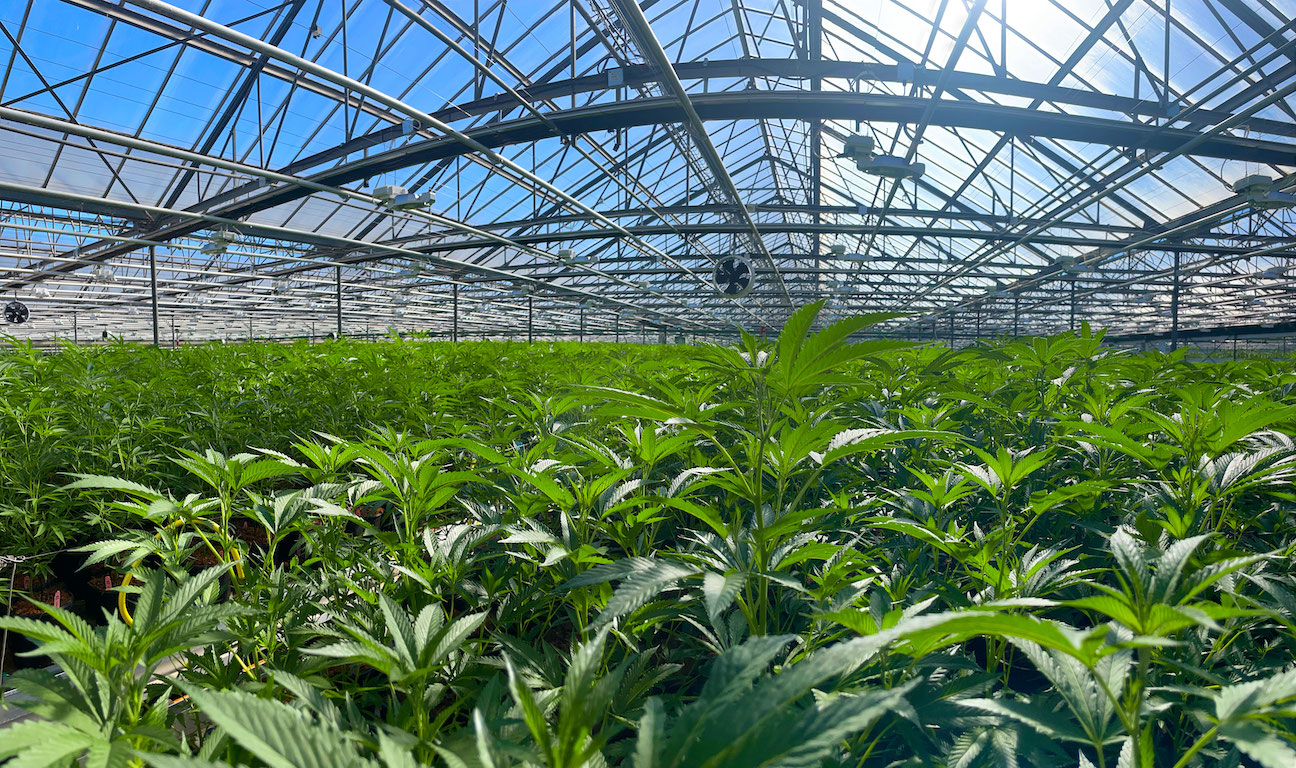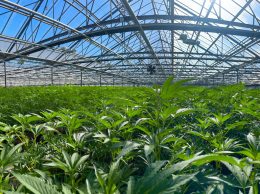Biden’s announcement has region’s cannabis companies seeing green
IN THIS ARTICLE
- Latest news Topic
- Jorge Mercado Author
By Jorge Mercado Friday, October 7th, 2022
Glass House Brands purchased Houweling’s Tomatoes greenhouses in Camarillo with the hopes of growing and selling cannabis not just for the state of California, but for the entire country.
After president Joe Biden’s announcement on multiple cannabis issues Oct. 6, including potentially removing the drug from the most restrictive tier of federal controls, that hope got a lot bigger.
Biden announced the first major steps toward federal cannabis decriminalization, including pardoning anyone with a federal conviction for cannabis possession and calling on state governors to do the same, as well as removing cannabis from Schedule 1 of the Controlled Substances Act and perhaps eventually ending its federal prohibition entirely.
“These are baby steps, but exciting baby steps,” Amy Steinfeld, a managing partner at Brownstein Hyatt Farber Schreck who represents cannabis growers in Santa Barbara County, told the Business Times. “The significance is it shows that Biden and the administration understand the public perception of cannabis has changed.”
Graham Farrar, the president of Glass House Group, called it “the biggest announcement we have had so far” on federal cannabis policy.
From the point of view of a legal cannabis company like Glass House, the biggest part of Biden’s announcement was the relisting or delisting of cannabis, which as a Schedule 1 substance is now grouped with heroin and other more dangerous drugs.
“There’s only a couple of ways that cannabis gets legalized, whether its de-scheduled hopefully, rescheduled possibly, and Biden just kicked off a process that would potentially de-schedule cannabis without congressional involvement,” Farrar said.
Glass House Farms currently grows cannabis in about 600,000 square feet of its Camarillo-area greenhouse facility. If cannabis is federally legalized, Farrar said the company would grow it on the entire 5 million square feet. He said it would be the largest cannabis operation in the world.
“We would go from feeling small to feeling big,” Farrar said.
Cannabis, if delisted, could be federally regulated the way alcohol is, which isn’t scheduled as a controlled substance but it still heavily regulated at the federal and state levels.
If cannabis is moved to a less restrictive schedule, it could still be federally legalized. For example, testosterone is a Schedule 3 drug and Xanax is a Schedule 4 drug.
“If it is classified as Schedule 1 or 2, it is more stringently regulated,” Steinfeld said. “Cannabis can’t be treated like carrots, it needs some oversight, but a federal market could mirror something like California and that would also help California be able to move product interstate to other places that may not have as favorable growing conditions.”
Steinfeld expects the process of studying cannabis’ scheduling status to take at least six months, but the federal government could use previous studies done by states that have already legalized cannabis, like California, to quicken that process.
“There’s a lot more information on the safety of cannabis than there was just four or five years ago,” she said.
The biggest thing legalizing cannabis at the federal level would do for California growers and retailers is allow them to sell their product in other states where it is legal. Under current regulations, California-grown legal cannabis can only be sold in California.
Skip Motsenbocker, CEO of Pacific Stone, a cannabis grower in Carpinteria, told the Business Times he was shocked to see Biden’s announcement.
“I never imagined that this would happen anytime soon,” he said. “I always figured everything is always going to be a crawl, walk, run strategy.”
Pacific Stone is one of the largest cannabis brands in the state. The company runs multiple greenhouses and sells under its own label in dispensaries statewide.
If cannabis is federally legalized, Motsenbocker said it would also open the opportunity for cannabis operations to go public in the United States. It could also allow them better access to the banking system; most banks are federally regulated and wary of doing business with cannabis companies.
“If we could get some form of safe banking and that safe banking allowed for some form of equity movement, or the ability for your company to be traded, raise public capital, and then continue to grow, that would certainly be something that would be of interest,” Motsenbocker said. “But again, we still have a long way to go.”
Glass House Brands, like other publicly traded cannabis companies, trades on a Canadian stock exchange. Its shares shot up 39.4% the day of Biden’s announcement and another 13% the next day, to close at $3.38 on Oct. 7.
During the early days of legalized cannabis in California, the banking situation was even more difficult. Some companies paid their taxes and employee salaries entirely in cash.
Motsenbocker said there are now more banking entities that feel comfortable dealing with cannabis companies, and federal legalization would presumably lengthen that list of cannabis-friendly banks.
Current IRS rules prevent cannabis businesses from deducting some typical business expenses. If cannabis is listed at anything below Schedule 2, those restrictions would disappear.
Central Coast elected officials were generally happy with Biden’s announcement.
U.S. Rep. Salud Carbajal, D-Santa Barbara, told the Business Times that decriminalizing cannabis and pardoning past offenders are steps to becoming “a more enlightened country.”
According to the New York Times, more than 6,500 people with prior convictions for simple marijuana possession will be impacted by the pardons. No one is currently serving time in federal prison for possession.
“We’re not talking about releasing serious criminals,” Carbajal said. “We’re talking about helping people with possession convictions long ago to become more productive members of society.”
Santa Barbara County Supervisor Das Williams said the rescheduling of cannabis and possible legalization could help “knock out the black market.”
Illegal cannabis is still estimated to be a much bigger market than legal cannabis in California. Mostenbocker told the Business Times last month that he thinks about 80% of the market is illegal.
Williams said federal rescheduling could help legal cannabis businesses compete with the black market, through better access to banking and capital and potential interstate sales. “The cartels are shipping across state lines, I can tell you that,” he said.













